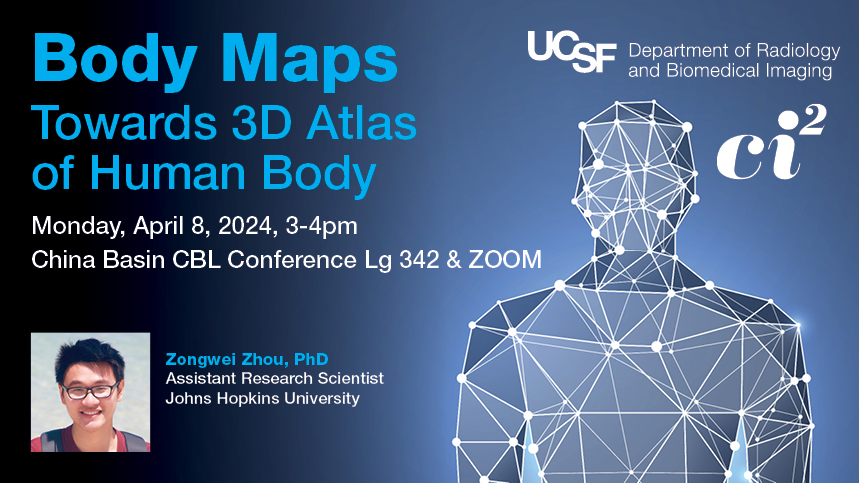Body Maps Towards 3D Atlas of Human Body

Cancer, a leading cause of mortality, can be effectively treated if detected in its early stages. However, early detection is challenging for both humans and computers. While AI can identify details beyond human perception, delineate anatomical structures, and localize abnormalities in medical images, the training of these algorithms requires large-scale datasets, comprehensive annotations. Several disciplines, including natural language processing (e.g., GPTs), representation learning (e.g., MAE), and image segmentation (e.g., SAMs), have witnessed the transformative power of scaling data for AI advancement. Still, this concept remains relatively underexplored in medical imaging due to the inherent challenges in data and annotation curation. This talk seeks to bridge this gap by focusing on datasets and annotations that are integral to the analysis of medical images, particularly for early cancer detection.

Zongwei Zhou is an assistant research scientist at Johns Hopkins University. He received his Ph.D. in Biomedical Informatics at Arizona State University in 2021. His research focuses on developing novel methods to reduce the annotation efforts for computer-aided detection and diagnosis. Zongwei received the AMIA Doctoral Dissertation Award in 2022, the Elsevier-MedIA Best Paper Award in 2020, and the MICCAI Young Scientist Award in 2019. In addition to seven U.S. patents, Zongwei has published over 30 peer-reviewed journal/conference articles, two of which have been ranked among the most popular articles in IEEE TMI and the highest-cited article in EJNMMI Research. He was named the top 2% of Scientists released by Stanford University in 2022 and 2023.
